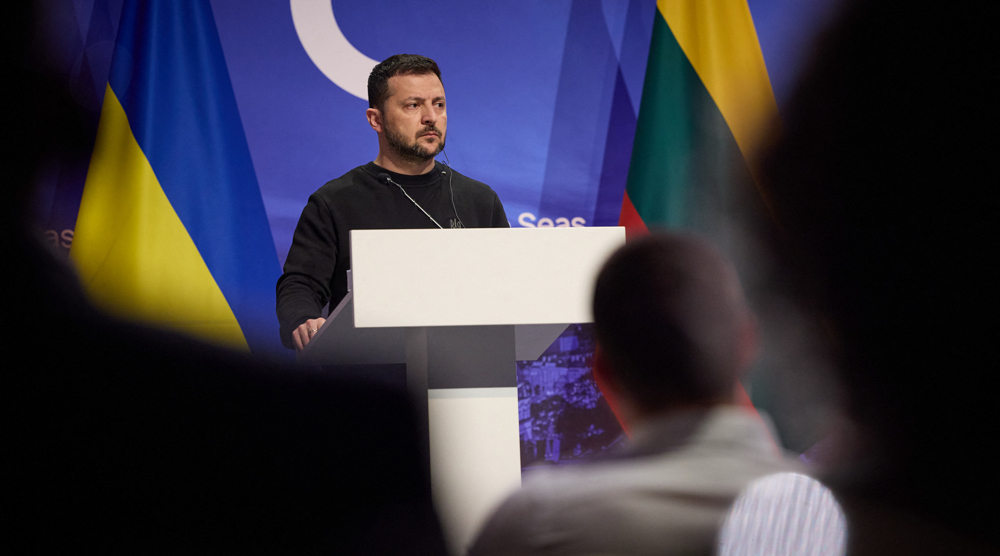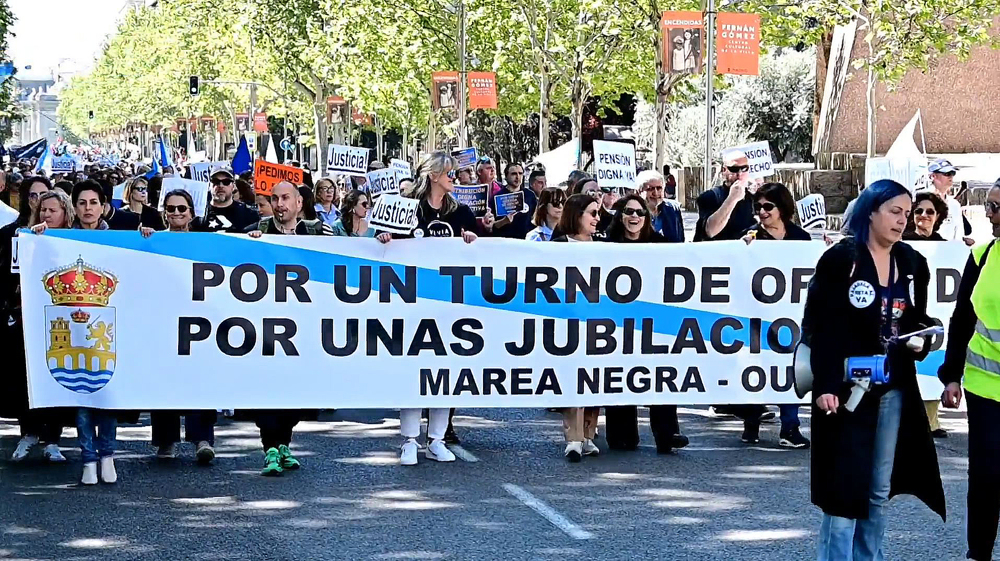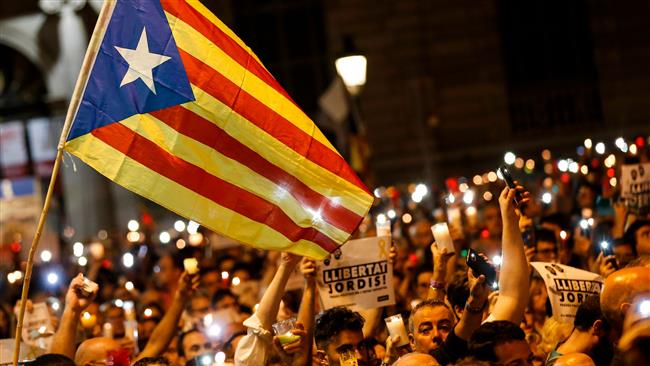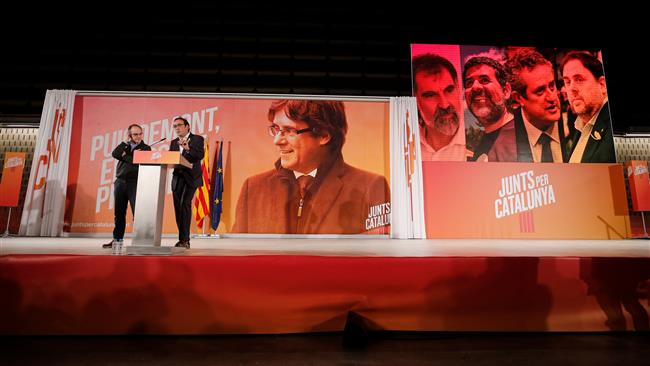Catalan legislators elect separatist speaker
Catalan lawmakers on Wednesday elected a separatist as parliamentary speaker, the first stage of a plan by pro-independence deputies to get regional leader Carles Puigdemont, in self-exile in Belgium, back into power.
As MPs met for the first time since a failed bid to break from Spain, protesters waving separatist flags gathered outside the assembly in Barcelona where pro-independence parties are in the majority after winning regional elections on December 21.
With 70 out of 135 deputies, they largely favor Puigdemont, sacked by Prime Minister Mariano Rajoy along with his cabinet on October 27 after the regional parliament declared unilateral independence, as candidate for president.
Despite being in Belgium, Puigdemont wants to make a comeback and govern the deeply divided region.
For separatist lawmakers, the first step towards this was to secure control of parliament by getting one of their supporters elected as speaker.
They did precisely that on Wednesday, with 65 lawmakers voting for Roger Torrent, a member of the leftwing separatist ERC party, against 56 who cast their ballot for an anti-independence candidate.
Separatists will also attempt to get a majority of their supporters elected as deputy parliamentary speakers.
These make sure assembly rules are respected and will decide whether Puigdemont and others are allowed to be lawmakers while remaining out of the country.
Including the former Catalan president, five separatists are abroad and risk arrest on charges of rebellion, sedition and misuse of public funds for their role in the failed independence bid if they come back to Spain.
A further three pro-independence lawmakers are in jail pending a probe into the same charges.
Large yellow ribbons that have come to represent support for those in jail were placed on parliamentary seats Wednesday.
Separatist lawmakers clapped when their names were read out in the opening session.
"Those who should be here are precisely those who aren't," said Ernest Maragall, one of these MPs.
To be elected president, Puigdemont should in theory be present at a later parliamentary session where the vote to name a new leader takes place, but he wants to appear by videolink or write a speech and have it read by someone else.

The Catalan parliament's rules stipulate that the candidate for the regional presidency must "present his or her government program to parliament".
It does not detail whether this must be done in person, but several legal experts, the opposition and the central government insist it cannot be done remotely.
Rajoy's government has warned Madrid will maintain direct control over Catalonia if Puigdemont attempts to govern from Belgium, which could lead to yet another crisis.
Madrid's direct rule has proven very unpopular in a region that had enjoyed considerable autonomy before its leaders attempted to break away from Spain.
According to Economy Minister Luis de Guindos, the secession crisis that kicked off on October 1 when Catalan leaders held an independence referendum despite a court ban has taken a financial toll.
He has said the crisis has slowed economic growth in the region at an estimated cost of one billion euros ($1.2 billion).
More than 3,000 companies have moved their legal headquarters out of the region as uncertainty persists.
(Source: AFP)
‘Iran retaliation against Israel ensured no aggression would go unanswered’
US vetoes Palestinian request for full UN membership
Iran sufficed to strike only part of Israel’s military positions: FM to UN chief
IRGC: Israel’s Dimnoa nuclear reactor not among Op. True Promise’s targets
VIDEO | West Asia awakens
'Stop any further Israeli adventurism,' Iran FM tells Security Council
Google fires 28 employees for protesting military deal with Israel
Burkina Faso expels three French diplomats over ‘subversive activities’














 This makes it easy to access the Press TV website
This makes it easy to access the Press TV website